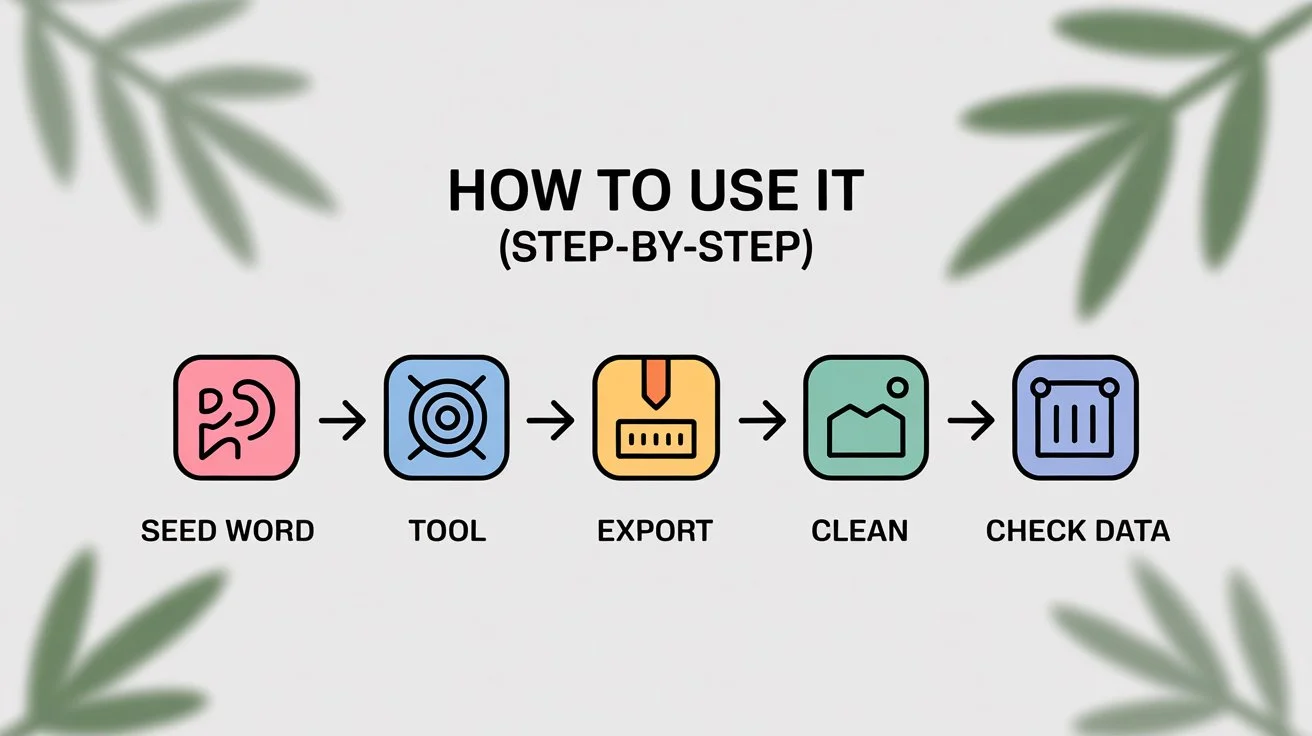Introduction: Feeling Lost in the SEO Jungle?
You want people to visit your website, but standing out on Google feels confusing. You’ve heard that keywords are the key to visibility—but how do you find the right ones without spending hours? That’s where a keyword shitter comes in.
Don’t let the odd name fool you. This tool is a powerful way to quickly uncover hundreds or even thousands of keyword ideas. In this guide, you’ll learn what it is, how to use it, and how it fits into smart SEO strategies that actually work.
You can check my previous blog: Keyword Optimization by Garage2global
1. What is a Keyword Shitter? (A Keyword Idea Machine!)

A keyword shitter is an online tool (usually free or low-cost) that generates massive lists of keyword suggestions based on a seed word. You enter one or more basic words (called seed keywords), and the tool “spits out” dozens, hundreds, or even thousands of variations.
How It Works:
- Input a Seed: For example, you type in “home workouts.”
- Tool Generates Variations: The tool will then create phrases like “home workouts for beginners,” “home workouts without equipment,” or “morning home workouts.”
These tools add common prefixes and suffixes to your word to generate variations people might be searching for.
Note: The term “keyword shitter” is slang. Many tools don’t use this phrase in their branding. Instead, look for names like “keyword generator” or “keyword expander.”
2. Why Use a Keyword Shitter? (Find Long-Tail Gold!)

Keyword tools that give you big lists might look messy at first. But hidden inside those long lists are gold nuggets that can power your SEO growth.
Benefits:
- Find Long-Tail Keywords: These are longer, more specific search phrases like “cheap yoga mats for beginners.” These phrases are easier to rank for and attract people ready to take action—like buying or subscribing.
- Understand Search Intent: You’ll see what people are actually searching for. Some users want to buy, others want to learn, and some are just comparing options. Seeing the actual phrases helps you meet their needs better.
Instead of guessing what your audience wants, use a keyword shitter to discover it.
3. How to Use a Keyword Shitter (Smart, Not Just Fast)
Getting a long keyword list is just step one. To use it for real results, you need to follow a clear process.
Step-by-Step Guide:

- Choose Your Seed Word
Think about your topic. For a page about gardening tools, start with seeds like “garden tools,” “planting kits,” or “buy garden tools online.”
- Run the Tool
Use a keyword shitter or another tool that gives keyword ideas. Let it generate as many phrases as possible.
- Export the List
Save the keyword list into Google Sheets or Excel.
- Clean and Filter
Go through the list and:
- Remove irrelevant keywords (e.g., unrelated terms).
- Group similar ideas (e.g., “buy garden shovel,” “purchase gardening spade”).
- Spot search intent (look for terms like “cheap,” “best,” “how to,” or “reviews”).
- Check Data in Other Tools
A keyword shitter gives you raw ideas. But to know which ones are valuable, use tools like:
- Google Keyword Planner
- Ubersuggest
- SEMrush
- Ahrefs
These show:
- Search volume means how many people look for it each month.
- Keyword difficulty (how hard it is to rank)
- Choose the Right Ones
Prioritize keywords based on:
- Relevance to your page
- The intent behind the search
- Realistic ranking potential
- Actual search volume
4. Pro Tips for Smarter Keyword Research

To get the most from your keyword shitter, keep these best practices in mind:
- Start Small: Don’t try to cover your whole site in one run. Work on one topic or webpage at a time.
- Use Strong Seeds: Use clear, relevant seed words to get better keyword ideas.
- Expect a Mess: The list will be rough. You get real SEO results when you sort the list properly.
- Mix with Manual Research: Use your brain, too! A keyword shitter supports your ideas; it doesn’t replace thoughtful content planning.
- Focus on Long-Tail Phrases: These are the easiest to rank for and often bring in high-converting visitors.
Conclusion: Your SEO Shortcut Tool

A keyword shitter might sound silly, but it’s a smart way to kick off your keyword research. It saves you time, helps you discover untapped long-tail phrases, and gives you insights into what your audience wants.
Remember: this tool is just the beginning. You need to clean the list, check real data, and choose the right keywords based on what your audience is searching for. When used correctly, it becomes a key part of a complete SEO strategy.
FAQs about Keyword Shitters
Q1: Is “Keyword Shitter” a real tool?
A: It’s a casual name people use in the SEO world. Many tools function this way, even if they don’t use the exact term. Look for “keyword generators” or “expander tools.”
Q2: Are these tools free?
A: Yes, many keyword shitter-style tools are free or have free versions. Look up “free keyword list generator” to begin.
Q3: Is using one bad for SEO?
A: No, not at all! The tool simply helps you find ideas. It’s what you do with those ideas—like targeting the right keywords and writing helpful content—that matters.
Q4: Do I still need other SEO tools?
A: Definitely. A keyword shitter gives you quantity. Tools like Google Keyword Planner give you quality by showing traffic, competition, and trends.
Q5: How often should I use one?
A: Use it when researching a new blog topic, product page, or content update. It’s perfect for idea generation—not something you use every day.
Q6: Will I rank just by using these keywords?
A: No. Ranking takes more than finding keywords. You also need:
Helpful content
Good user experience
On-page SEO (headings, tags, etc.)
Authority (backlinks)
Keywords are only the start.

